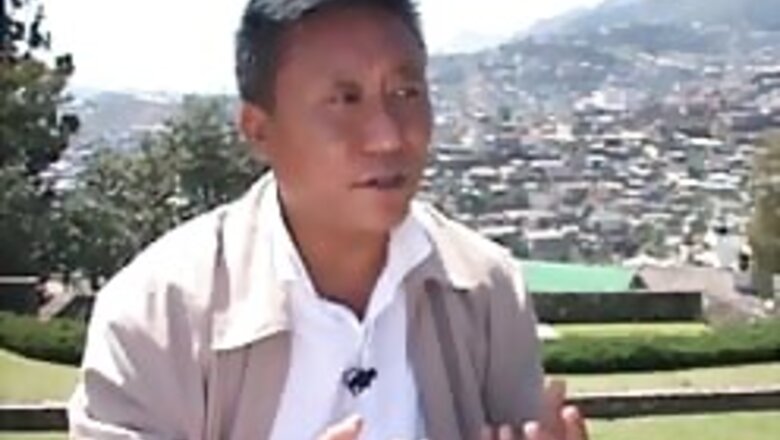
views
In an exclusive interview, the Vice-President of Naga Hoho, Keviletuo Kiewhuo, tells V K Shashikumar, Special Investigations, CNN-IBN as to why his group should be the decision-making body in Nagaland and how a war can change strategies.
V K Shashikumar: We would like to know about the current situation (in Nagaland) and your vision for the future. The new rounds of peace talks are going to begin soon. What is on the agenda?
Keviletuo Kiewhuo: It is a continuous process. But that’s not to suggest that we are going to have just another round of talks. Let’s see. After the first round of talks after the ceasefire extension in Bangkok on January 31, the Government of India said it would take a new initiative. We find that when we take a new initiative, the uncomfortable things that have been addressed earlier and which have been facing a logjam will have to be taken to a new direction, where both sides are able to win both ways.
V K Shashikumar: Doesn’t the entire discussion center around rearrangement of the federal structure?
Keviletuo Kiewhuo: Yes, the Nagas have proposed a federal structure and a federal relationship. That doesn’t mean that if a federal relationship exists today in the world, that will be the roadmap. But a new dimension has to come up where it makes Nagas a part of India and India a part of Nagaland; where both become inseparable and sovereign instead of being a one nation state and quarrel over it. It’s always better to have two nations.
PAGE_BREAK
V K Shashikumar: So what is your argument about democratising the federal setup?
Keviletuo Kiewhuo: That is what precisely the negotiations are about. Whatever the election practices are there in India, they elect or select their own leaders. It is not in consonance with the traditional Naga practices. We have the purest form of democracy where we find the best leader through consensus. Therefore, if there are some agreements, the Naga people also have to come up with their own genius, where we have to choose our leaders. We cannot be subjected to the provisions of the Indian Constitution. We have to choose our leaders.
V K Shashikumar: Can you talk about the ethnic democratic traditions of the Naga society?
Keviletuo Kiewhuo: If you look at our villages today, they are not a village what a village would be like. Every village is a republic state or city. Therefore, a village governs itself through the clan. Then comes the village level -- every clan elects its own representative according to its choice and sends it to the village. Within this representative, they elect the governing body in the village. So this system comes up to the tribal level.
They send their representative to the Naga Hoho in whatever organisation they exist and they choose their representative through consensus formations. Therefore, we didn’t want the democratic practice of the West to be imposed on India. But today India is imposing it on us. We don’t want this. It cannot relate to our heritage and democratic practices. It is not relevant.
PAGE_BREAK
V K Shashikumar: Does it also mean that Naga Hoho actually becomes the decision-making body of Nagaland instead of State Assembly in a new political structure?
Keviletuo Kiewhuo: It has to be the decision-making body one day. But even today, Hoho at the tribal level and village level makes decisions that affect every Naga individual. We are staying away from the real politics today because we have got the National Socialist Council of Nagaland (NSCN), the NNC and the state government. We don’t want to get muddled up in the real politics. We want people to come together first, but the Hoho is of prime concern.
One day this institution has to grow to mould the Naga opinion and give good governance to the Naga people. If you look at the state arrangement today, like I said earlier, it is all based on constituency. We don’t want that system. We want all Nagas to be agreeable to elect their leader. It is quite young today, but if it leaps forward one day, there will be a true government governing the Naga people of the state. But the society will have to be governed by the Naga Hoho without other responsibilities.
V K Shashikumar: What could happen if the talks collapse?
Keviletuo Kiewhuo: We will go back to the square one.
V K Shashikumar: Will you really go back to square one or will it be square one plus one?
Keviletuo Kiewhuo: It will be worse. If you look at the past, the Nagas have the honour to respect their enemy also. If you look at the 1964 Pakistan War, the 1962 Chinese Aggression, the 1971 Indo-Pak War, at that given point of time the Nagas were at war with India. India was suffering at the hands of Pakistan and China and we didn’t take advantage of that. We stopped all the operations in Naga areas, but today that will never happen. The war will have to be taken to the urban areas, to the cities. Earlier it was jungle warfare where people didn’t suffer much, only the villagers suffered.
PAGE_BREAK
V K Shashikumar: So if the talks collapse, the war will be brought to the cities.
Keviletuo Kiewhuo: We will change the strategies of the war. Power doesn’t come from the forest or jungles. It has to come from cities and villages. The power centre of the Indian Government has to be shaken and that will definitely happen.
V K Shashikumar: Have you given out this message to the government. directly? What have you said?
Keviletuo Kiewhuo: Yes, we have been saying this that in the past the war was fought between the Naga army and the security forces only. We have not touched even a single government official under the Constitution of India, nor have the Nagas touched the Indian civilians. But tomorrow if the war resumes, they will have to go to the decision-makers also. Why should the Army be the only casualty? The decision-makers have to be taken to task. This is where the danger lies in the new warfare.
V K Shashikumar: What is the bottom line?
Keviletuo Kiewhuo: If I look at the whole peace process for the last nine years, there have been hiccups in between the talks. If you look at it objectively, it is progressing very well and we are very optimistic about the peace process. In a single sentence, I can say it is going to happen. But how is it going to happen depends upon the Government of India and NSCN.
Both of them are committed to resolve the issue, but the Government of India has to be more sincere about the process. Though they are committed, they are not sincere. That is why negotiations have taken place for so many years. If it doesn’t happen in two or three years, the ceasefire will collapse and the talks will collapse by its own weight. Negative publicity adversaries will jam into the face and say this is not going to happen. Demoralisation will set in and this is where the adversaries will win against peace. Those who are for peace will lose. Those who are for war will win.














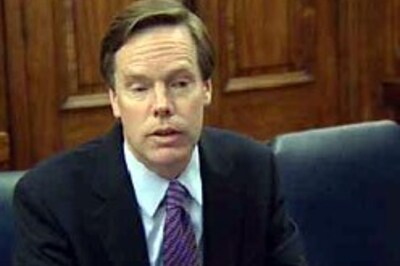
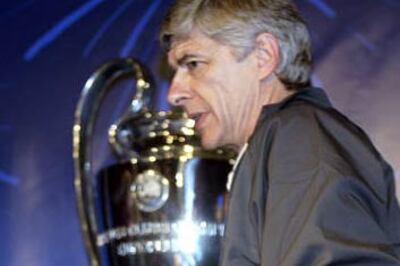
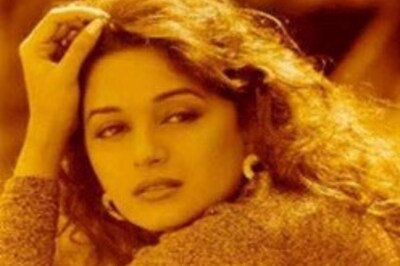
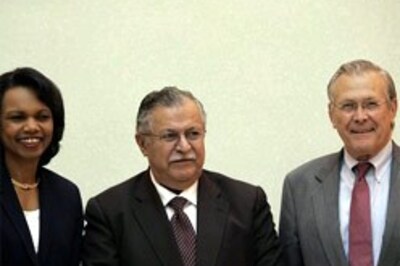
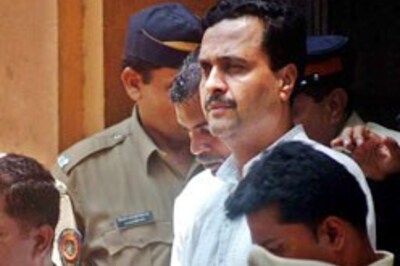

Comments
0 comment